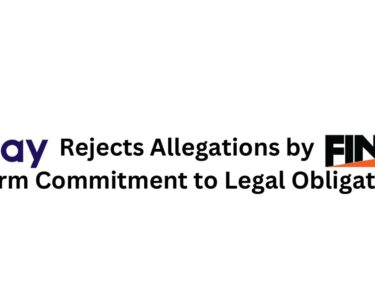In an effort to enhance the affordability of digital services, the Global System for Mobile Communications Association (GSMA) has called for a reduction in taxes on telecom customers. The tax burden on telecom users in Pakistan, one of the highest-taxed telecom markets globally, stands at 34.5 percent, which includes 15 percent WHT and 19.5 percent GST. This proposal by GSMA aims to address the impact of high taxes on the mobile industry, which plays a crucial role in driving digital transformation and achieving the Digital Pakistan Vision.
1. Tax Contribution Challenges in Pakistan’s Mobile Sector
The current tax contribution from the mobile sector in Pakistan surpasses that of similar markets in the region, severely limiting the industry’s capacity to invest in network infrastructure and hindering the realization of the Digital Pakistan Vision. Considering the challenging economic conditions, GSMA recommends tax reforms that improve the business environment without significantly impacting the exchequer. These reforms not only expand broadband services but also accelerate digitization and enhance productivity across various sectors in the country.
READ MORE: Government to Increase Taxes on Non-Filers in Real Estate Transactions
2. Adverse Effects of High Taxes on Mobile Broadband Services and Handsets
GSMA’s recommendations, submitted to the Ministry of IT & Telecom and the Pakistan Telecommunication Authority for the Finance Bill FY2023-24, underscore the adverse effects of high taxes on mobile broadband services and handsets. These taxes burden the affordability of essential mobile and broadband services, disproportionately affecting the poor. To address this issue, GSMA highlights the importance of reducing Advance Income Tax (AIT) to enhance the accessibility of mobile handsets and broadband services.
3. Stimulating Mobile Broadband Adoption for Increased Productivity and Economic Growth
The regressive nature of AIT becomes evident as many low-income users are not required to file tax returns and, therefore, cannot claim tax refunds. By reducing AIT, the proposed tax reform would support government initiatives such as “smartphones for all” and stimulate mobile broadband adoption. This, in turn, would result in increased productivity and economic growth, benefiting both individuals and the country as a whole.
4. Advocating for a Predictable and Simplified Tax System
GSMA also advocates for a predictable and simplified tax system in the telecom sector. It suggests implementing uniform sales tax rules, drafted and agreed upon by Federal and Provincial Tax Authorities, aligned with international and regional practices. This includes a single tax rate, uniform principles for tax audits, input adjustment rules, and compliance requirements. The goal of this tax reform is to enhance the ease of doing business while ensuring no loss of tax revenue to the exchequer.
5. Granting Reductions and Exemptions to the Telecom Sector
Furthermore, GSMA recommends granting reductions and exemptions to the telecom sector from all types of withholding taxes, similar to those granted to the banking and oil sectors. This tax reform would simplify the tax collection mechanism through quarterly advance payments and reduce compliance costs. Ultimately, it would support investment and contribute to a simplified and predictable tax system in the country.
6. Fostering Adoption of Mobile Broadband Services for Economic Growth
By implementing these tax reforms, Pakistan can foster the adoption of mobile broadband services, drive economic growth, and empower its citizens with affordable access to essential digital services. The reduction in taxes on telecom customers would enhance the affordability of digital services, making them more accessible to a wider population.




